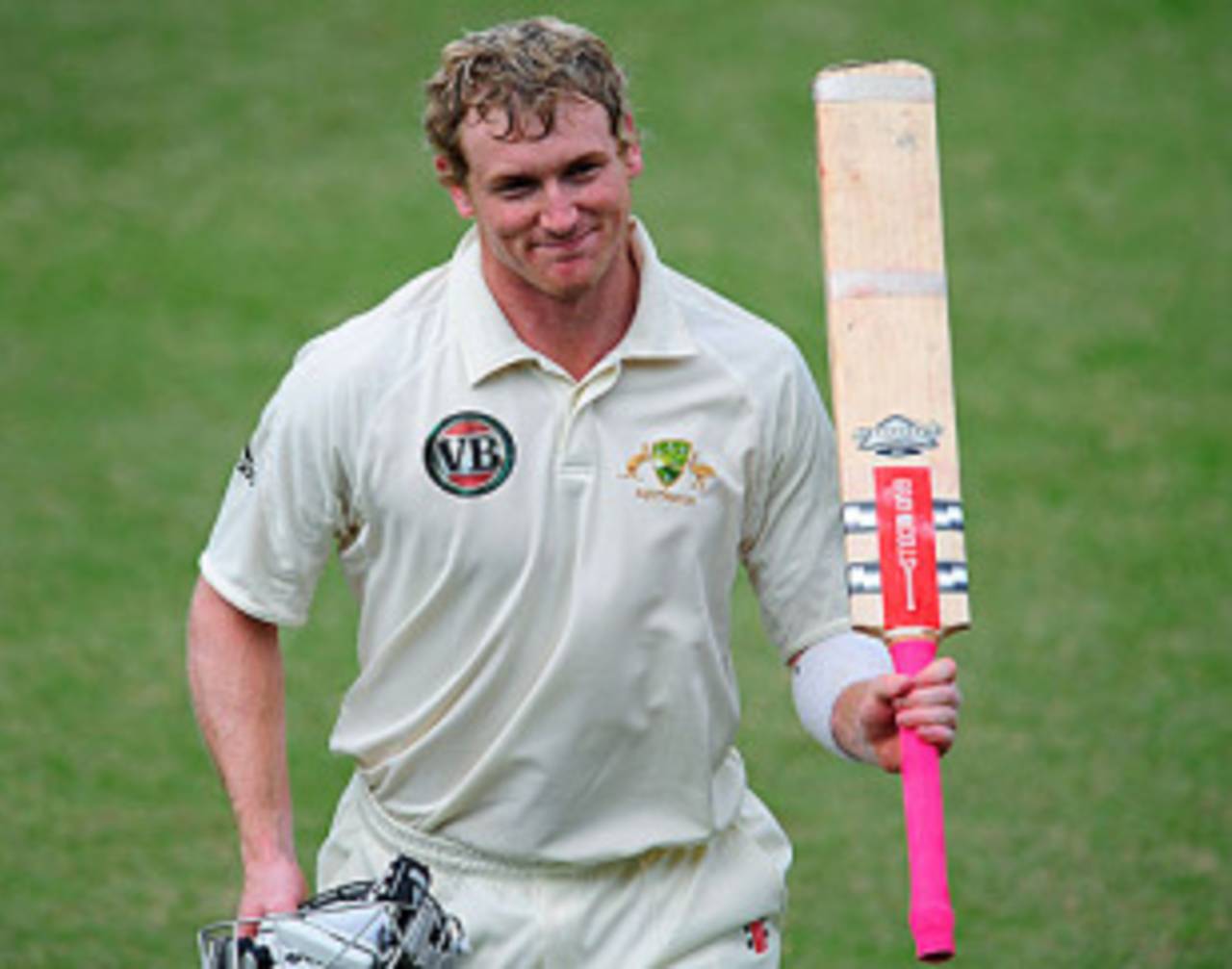The captain's brief
If George Bailey can achieve anything like the same success enjoyed so far by Michael Clarke, the World T20 trophy is not out of the question
Daniel Brettig in Sydney
31-Jan-2012

George Bailey: "It's my team and I'm trying to do things the way I like to do them." • Getty Images
In its own truncated way, the task facing George Bailey as Australia's Twenty20 captain can be seen to resemble that which confronted Michael Clarke when he took over from Ricky Ponting as Test captain.
As with Clarke, Bailey has taken over his team at a time when its performances have been poor, lacking in consistency and focus. There have been plenty of changes made to the make-up of the side and, like Clarke, Bailey is required to build the right attitude and culture for his men.
Also similar is the fact that Bailey enters the job without much in the way of runs behind him. It cannot be forgotten that Clarke took the Test captaincy at the end of the most wretched run of batting form of his career, ensuring he had to take extra care to make sure his form was in order even as he worked at leading the team.
Bailey's brief was set out with plenty of clarity when John Inverarity, the national selector, unveiled him as the successor to Cameron White. "Australia's T20 Team has been ranked a disappointing sixth in World Rankings. It is considered that the team needs refreshment and a number of changes have been made," Inverarity said. "The role of the captain is especially important in fast-moving T20 cricket.
"Meticulous preparation then needs to be accompanied by cool split-second decision making throughout the 120 events when the team is in the field. A captain can have a most significant impact on a game even if he does not bowl or get to the crease. The NSP is looking to the new leadership of Mickey Arthur, Bailey and David Warner to drive a focused, disciplined and fiercely determined culture in this team."
Since convening with his squad in Sydney, Bailey has made the most of the time available. A squad dinner at a wharf-side steakhouse offered the chance to build a semblance of camaraderie, while at the team hotel Bailey has spent plenty of time chatting with the coach Arthur while also taking particular care to spend time with his bowlers.
As he contemplated his first match in charge, Bailey said his desire was to create a consistent team, or as close to that as is possible in a format where one delivery can change a game.
"I think consistency is a really important word for T20 - that's the hardest thing to be as a T20 team," Bailey said. "The one thing I'm really excited about the group we've got here for this week is that it's full of match-winners, but they're pretty consistent match-winners, it's not too sporadic and not too hit and miss, so that's one of the things.
"One point of difference we can have in Australia is I think we can be the fittest, the best fielding side and the hardest working. It's a bit of a flukey game, you do need a slice of luck to go your way, but as they say, the harder you work, the luckier you get. My personal feeling with T20 is just to prepare meticulously, and though it is a really short game, you've got to have plans A, B, C, and D up your sleeve and not suddenly be standing in the middle, scratching your head and wondering 'right, what am I going to do now?'
"A really key part of that is getting to know the bowlers, I'm lucky that I've played with three or four and know their games really well, there's a couple I'm still learning, but that's exciting as well."
In such a short space of time, Bailey cannot be expected to place his "stamp" on the team, but he is doing his best to shape it in his sharp, gregarious image.
"It's my team and I'm trying to do things the way I like to do them," he said. "The beauty is I get along very well with Mickey, we have a very similar outlook on things so we've worked well together in the first couple of days. It is a real challenge that you aren't together much. What we're trying to do at the moment is galvanise this group and let this group know there's a World Cup in six months and we're the 14 that have first crack at proving we should be there."
If Bailey can achieve anything like the same success enjoyed so far by Clarke, the World T20 trophy is not out of the question.
Daniel Brettig is an assistant editor at ESPNcricinfo. He tweets here